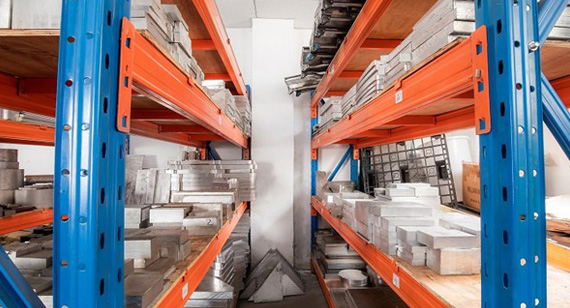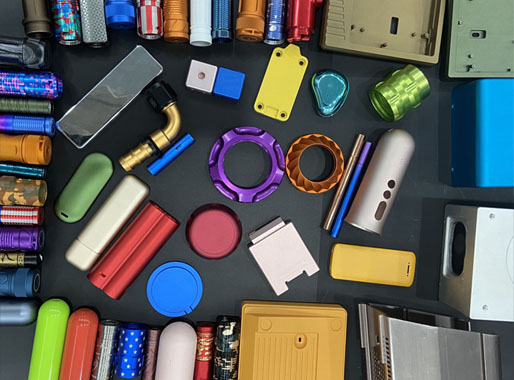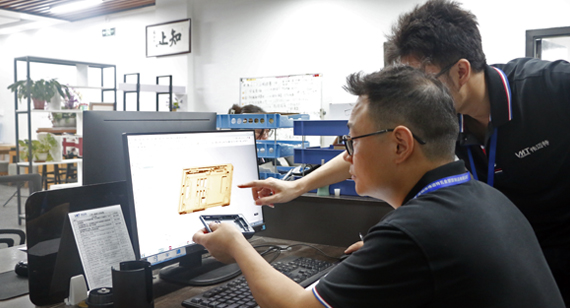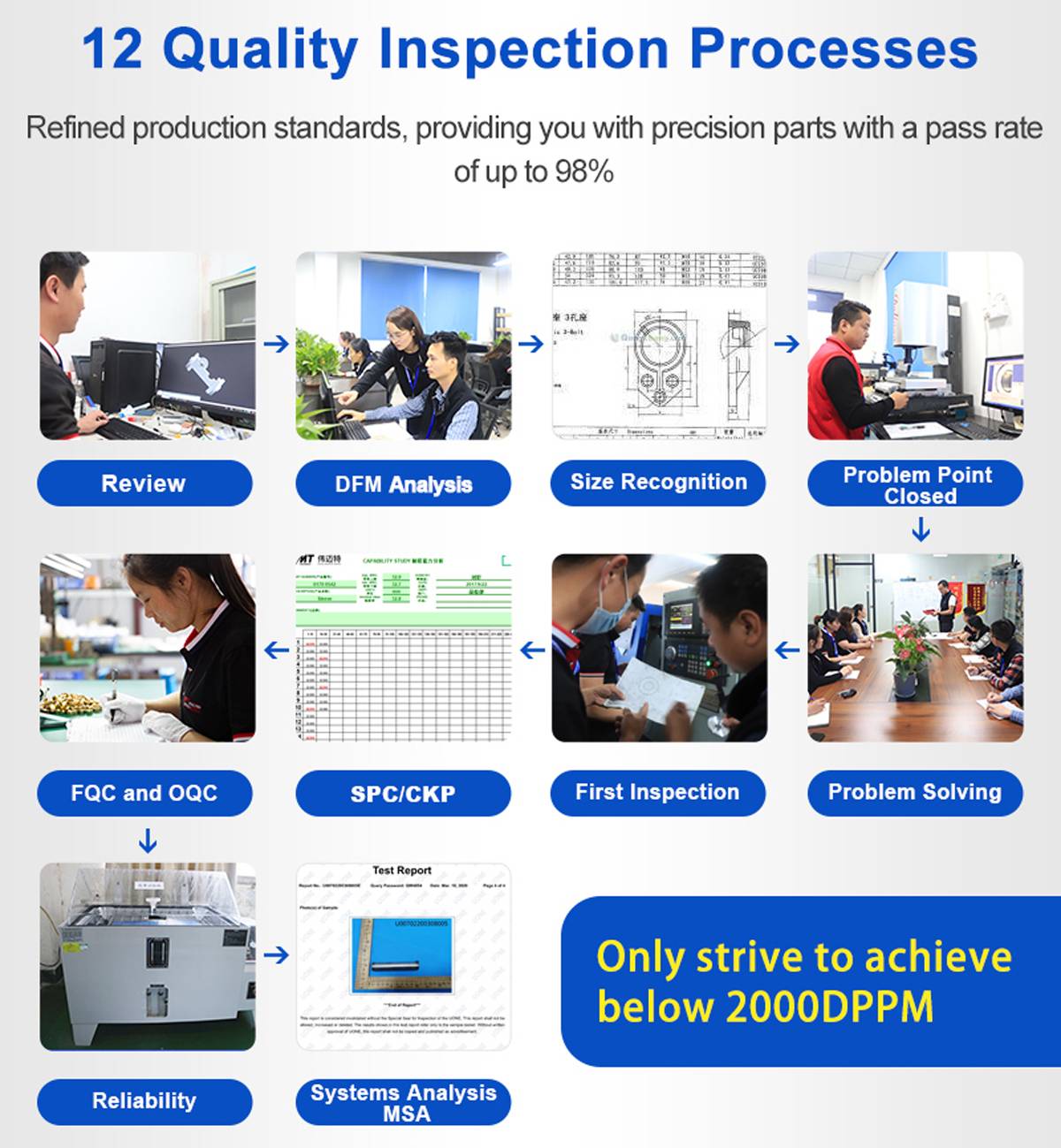15 years one-stop China custom CNC machining parts factory

Hey there I’m VMT Sam!
With 25 years of CNC machining experience we are committed to helping clients overcome 10000 complex part-processing challenges all to contribute to a better life through intelligent manufacturing. Contact us now
 106 |
Published by VMT at Feb 24 2024
106 |
Published by VMT at Feb 24 2024
Introduction:
In the realm of CNC machined parts manufacturing, surface impact resistance stands as a pivotal benchmark for assessing part quality. Parts with poor impact resistance are prone to issues such as breakage, cracks, or fatigue failure during usage, significantly affecting their lifespan and safety. Therefore, improving the surface impact resistance of CNC machined parts is of utmost importance. This article explores the key factors influencing surface impact resistance and outlines practical methods to enhance the impact resistance of parts in real-world production.

I. Factors Influencing Surface Impact Resistance of CNC Machined Parts:
Material Characteristics:
The mechanical properties of the material, such as hardness, toughness, and strength, significantly influence surface impact resistance. Different materials exhibit varying resistance to impact.

Processing Parameters:
Parameters during the CNC machining process, including cutting parameters, tool selection, and cooling methods, affect the surface quality of parts and subsequently impact their resistance to impact.
Heat Treatment Process:
Heat treatment can alter the internal structure of materials, affecting their mechanical properties. Well-planned heat treatment processes can enhance material hardness and toughness, thereby improving impact resistance.
Coating, plating, or strengthening treatments applied to the surface of parts can significantly enhance their impact resistance. Different surface treatment methods yield varying degrees of performance improvement.

Structural Design:
The design of a part's structure also influences its impact resistance. Rational structural design and even stress distribution contribute to increased resistance to impact.

II. Methods to Improve Surface Impact Resistance of CNC Machined Parts:
Select Appropriate Materials:
Choose materials with high hardness and good toughness based on usage requirements and processing conditions to enhance the part's impact resistance. For example, certain alloy steels and high-strength plastics exhibit excellent impact resistance suitable for parts subjected to impact.
Optimize Machining Process Parameters:
Adjusting cutting parameters, tool selection, and cooling methods during the CNC machining process can improve surface roughness and stress distribution, thus enhancing impact resistance.
Implement Heat Treatment Processes:
Apply appropriate heat treatment processes, such as quenching and tempering, based on material properties and requirements. This helps increase material hardness and toughness, contributing to improved impact resistance.
Apply Surface Strengthening Techniques:
Utilize surface strengthening techniques like coating, plating, carburizing, nitriding, etc., to form a protective layer with excellent impact resistance on the part's surface, thereby enhancing impact resistance.
Optimize Structural Design:
During the part design phase, consider the rationality of the structure and the uniformity of stress distribution to reduce the risk of local stress concentration, minimizing brittleness and potential breakage.
Conduct Fatigue and Impact Testing:
Subject optimized parts to fatigue and impact tests to verify whether their impact resistance meets requirements. Adjust and improve based on test results.
Enhance Quality Inspection and Control:
Establish a stringent quality inspection and control system to ensure effective control at every stage, preventing the occurrence of non-compliant products. Regular quality checks and evaluations help identify and address issues promptly, improving part impact resistance.

III. Case Analysis and Practical Experience:
In a case study, a mechanical manufacturing enterprise aimed to enhance the surface impact resistance of CNC machined parts. The company implemented a series of improvement measures, including material selection, optimizing machining processes, applying heat treatment and surface strengthening, optimizing structural design, and enhancing quality control. These measures significantly improved the impact resistance of CNC machined parts, contributing to overall product quality and customer satisfaction.
IV. Conclusion and Outlook:
Enhancing the surface impact resistance of CNC machined parts is crucial for improving product quality and extending lifespan. By understanding key factors influencing impact resistance and implementing effective measures such as optimizing material selection, machining processes, heat treatment, surface treatment, structural design, and quality control, parts' impact resistance can be significantly enhanced. As new materials, processes, and technological innovations continue to emerge, the impact resistance of CNC machined parts is expected to advance further.
To adapt to this trend, companies should stay abreast of new technologies and materials, promptly adopting advanced processing techniques and materials. Additionally, fostering collaboration with suppliers and customers is essential for mutual technological progress and innovative development. Companies should prioritize professional talent development and technical team building to elevate employee expertise and technological capabilities, providing robust support for sustainable business development.
In summary, improving the surface impact resistance of CNC machined parts is a systemic effort that requires consideration of various factors. Companies should take practical and effective measures, continually enhancing product impact resistance to meet market demands and customer expectations. In a competitive market environment, maintaining a competitive edge requires consistent improvement in product quality and technological proficiency.
Ready To Start Your Next Project?
Get Instant Quote

Request a Free Quote
Send us a message if you have any questions or request a quote. We will get back to you ASAP!